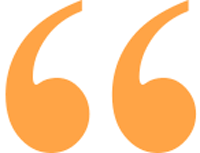A Different Conversation About Solitary Confinement

A Different Conversation About Solitary Confinement
Disability Rights California recently hosted a live conversation on social media about ending solitary confinement and centering disability. Facilitated by solitary survivor and DRC Community Organizer Vanessa Ramos, the conversation brought together solitary confinement experts Michael Saavedra and Professor Jamelia Morgan to share their experiences on both the carceral and legal sides of the issue.
Professor Morgan’s expertise stems from her research on disability and solitary confinement as the director of the Northwestern Law School Center for Racial and Disability Justice. Michael’s perspective was shaped by spending 15 of his 19 years in prison inside solitary. He organized hunger strikes and successfully sued state institutions while in solitary confinement.
The livestream conversation aimed to raise awareness about how and why solitary confinement is a disability issue. It’s important to center disability when discussing solitary confinement because the prison-industrial complex can limit access to services and violate the Americans with Disabilities Act (ADA).
The Harms of Solitary Confinement
Solitary confinement is one of the most severe and destructive practices used in detention facilities. The World Health Organization, United Nations, and other international bodies have recognized solitary confinement as greatly harmful and potentially fatal. People with disabilities, pregnant people, youth, and the elderly are all at heightened risk from the harm caused by solitary confinement inside jails, prisons, and immigration detention centers in California.
To that end, DRC is one of the co-sponsors of Assembly Bill 280, the California Mandela Act, which would prohibit the use of solitary confinement for specific populations including people with disabilities. DRC has also filed litigation, lobbied for changes in regulations and filed consent decrees on the issue.
Michael described solitary confinement as “designed to silence people,” with Professor Morgan adding that solitary is used as a management tool in prison to control and “quell dissent.”
They also discussed how solitary confinement and the prison-industrial complex can worsen disabilities or create new disabilities, because of the isolation and lack of services.


Fighting Solitary from Inside
The speakers talked about how Michael taught himself the law, and successfully sued the California Department of Corrections multiple times. He shared how it was “empowering” to win his first case while in solitary confinement.
“I was able to send money home to my parents, to my family, able to invest in law books, and get all the books that I wanted, so for me that was powerful,” Michael said.
Despite his success, Michael spoke about the “huge barrier” incarcerated people face when they try to advocate for their rights. He said that people in prison must be the ones to file legal appeals, instead of attorneys who are specifically trained to understand the system.


Michael’s experience led him to teach and help other incarcerated individuals how to advocate for their legal rights. He recently graduated from the University of California Los Angeles, and has worked with organizations like Critical Resistance, the L.A. Youth Justice Coalition, Dignity and Power Now, and Justice LA to end mass incarceration and advocate for people of color in his community.
Ending the Practice of Solitary
The speakers discussed how solitary confinement’s role in prison is to keep people under control, noting how solitary’s function in prison is to hold the system together. Since solitary is so effective for those purposes, Michael and Professor Morgan said that reforming the solitary system would only lead to incremental changes that produce the same result as solitary.
Professor Morgan said that rather than reforming the solitary system, elected officials should focus on “seeking abolition of solitary confinement through legislation and pushing again to disrupt the pathways into prison, decriminalization, and legalization.”
Echoing Morgan’s statements, Michael emphasized the importance of having public policy that is led by those who have personal experience with solitary confinement and the criminal legal system. “Policy without having… those who are directly impacted being a part of that, it’s not going to be of much use.”




